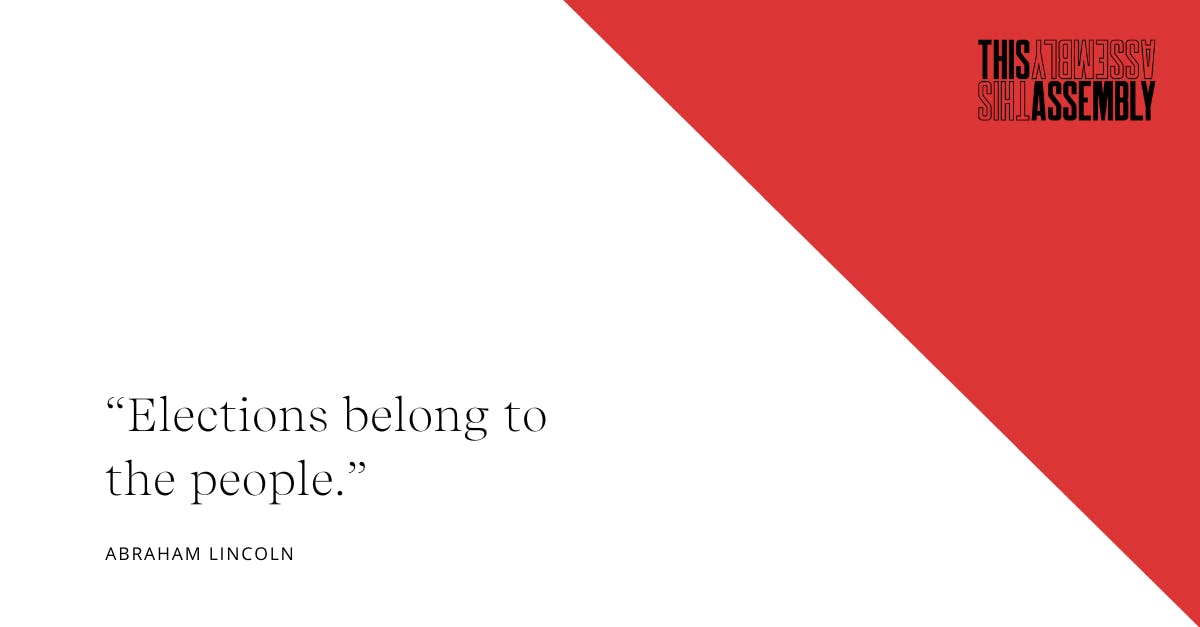Power To Your People

Author: Bashar Wali
I have always voted at my local library mini-branch. It was not much more than a large room lined with shelves and a check-out desk smaller than my kitchen table. The ballot dropbox was a well secured container but clearly something that could be removed after two weeks with the help of a common power drill. Earlier in the year, this annex closed in response to COVID shutdowns. I made a plan to drop my ballot in a different location; one conveniently located near a donut shop I’m trying not to frequent too regularly. When the time came, the weather had turned wet and cold and my motivation to make a morning excursion of it lost its appeal. So my mental voting plan reverted to the route I’d already worn well over the years. I’d simply add that errand our typical household weekend activities. As I pulled up to the dark library annex, I immediately saw an A-frame sign on the sidewalk alerting me, reminding me, that this library location had closed. The same streetside sign gave me the address and a rudimentary map to the nearest alternate ballot drop box location – maybe seven blocks away. Even if I was on foot, on bike, or taking public transit, this would be a pretty minor inconvenience. By car, it was so minor a detour that our waiting brunch party didn’t need to know plans had changed. Two streetlights later, I arrived at the new destination and I got to watch my 18-year-old, Noah, jump out the passenger side door and deposit his very first ballot into the postal-style dropbox welded to the sidewalk.
This is how the process unfolds when your government encourages the electorate to participate in democracy. When those in power want the voice and the will of the people to actually be heard. Ballots are distributed by mail. You have the opportunity to research and reflect on your vote at your leisure. There is not just a single drop-off box provided for an entire county. There are multiple convenient options in a single neighborhood. This approach to voting speaks to my hotelier heart. I know well the diversity of needs that exist under my roof every night and the mutiny I would face if I were to ascribe a one-size-fits-all, love-it-or-leave-it approach to providing customer service. Recognizing the uniqueness of our selves and fulfilling those individual needs are a key to earning support and loyalty. Things both business and government benefit greatly from.
There are some who hold the notion that people should prove their commitment to vote by enduring excruciatingly long lines at their polling places on a single or just a few designated polling days. Waiting in line for six, eight, 10 hours or more. This is an absurd burden to bear. Even assuming it’s possible that the needs of their job, their family, their dog are all somehow on hiatus for an uninterrupted stretch of 12 hours–why does the right to vote have to be fought for every election cycle? Isn’t spreading Democracy the ideal we’ve been fighting most of our actual wars over? Hasn’t this already been litigated? Isn’t one person, one vote regardless of class, creed or identity a foundational law of this land? It’s been 24 years since my citizenship exam but I feel reasonably confident I still have the answer right.
Presuming you agree with me, let’s think about how these principles manifest within your business. Do you find that you struggle with many of the same issues of class and equity at the micro level of your organization that we struggle with at the national level in our country? Maybe your salaried employees have greater personal agency that allows them to reliably schedule days off, or work from home, or run a little late without penalty when an event like Election Day or jury duty rolls around. Do your hourly employees enjoy that same flexibility? I’d be very surprised if they did. The nature of some of those roles just cannot absorb the uncertainty in attendance. So how do we ensure their civic participation is encouraged and valued the same as their coworkers?
Commitment to the quality, empowerment and happiness of staff extends beyond the election cycle, of course. Scores of workers in our industry aren’t even eligible to vote. How might we replicate the representative model of democracy within our organizations to address the pressing, kitchen-table issues that fall under the purview of their employer? We invest in understanding and responding to those needs at the local, workplace level. Like any investment, what might offer the greatest individual benefit in the short-term often is not the best solution for the long run or the greater good. Our sights should be set higher and farther. We need to be fully cognizant of how the choices we make impact so many more than just ourselves. More than just our teams. We’ve seen how pass-the-buck policies coming down from leadership can set a precedent that will be replicated by those who also wish to avoid addressing hard truths or difficult tasks. Be brave and judicious as you weigh your options. Be creative. Be empathetic. If you’re not sure about the details, do some digging around. Take some time until you feel confident it’s the best choice for the most people. Life-changing decisions don’t need to be, nor should they be, made on the fly while standing behind a dingy half-curtain in a crowded room after an interminable wait in early November weather.